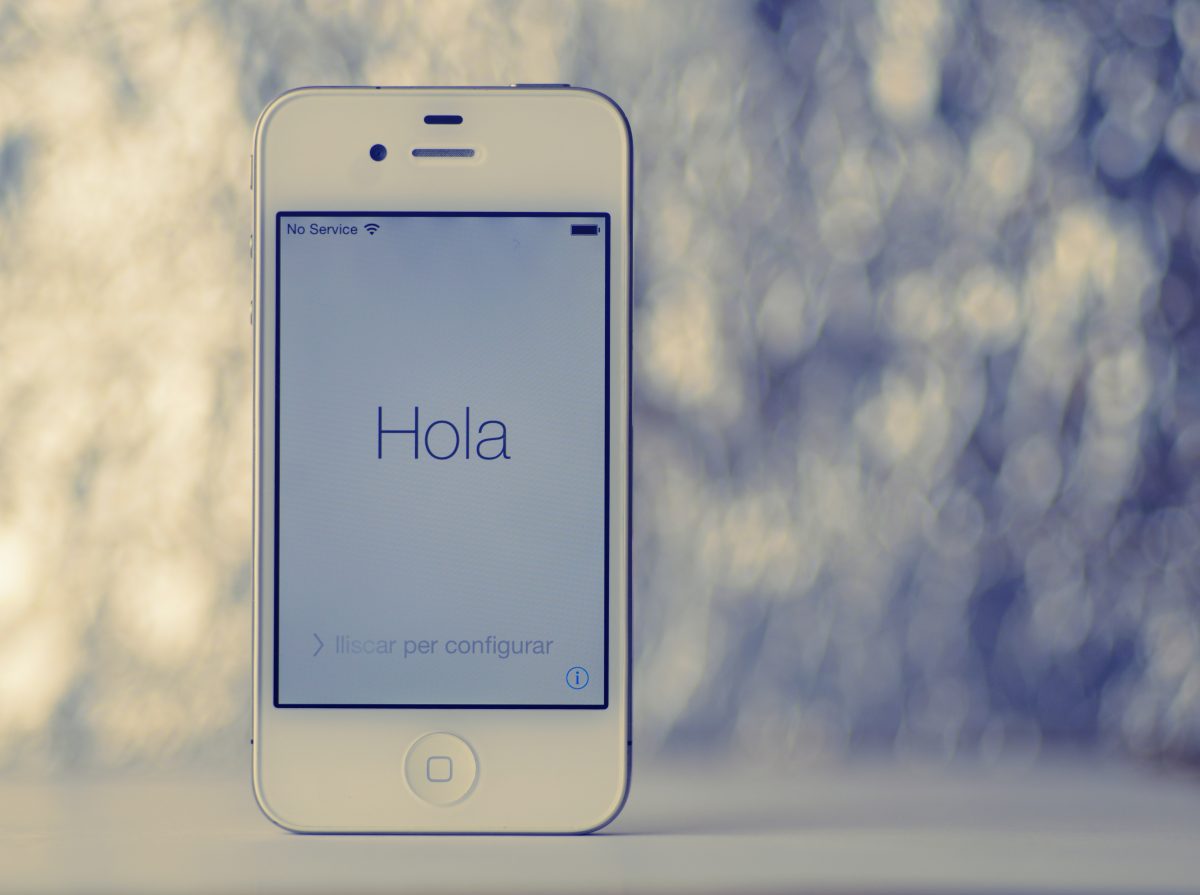10 Spanish Words To Know Before You Visit Spain

So you just booked a flight for Spain and you want to learn some basic Spanish words, that is great!
Do you know that Spanish is considered one of the most romantic and beautiful languages? It is close to other languages like Italian and French, but it has its own rules and rhythm. So let’s jump right into the 10 most important Spanish words to know before your trip.
1.
Say “Hola” To Say “Hello”
As basic as it is, Hola is one of the most important Spanish words to know, especially at the beginning. As you probably already understood, you can use it to say “Hello” and as a general greeting. For example, when you meet a friend you can say “Hola Amigo”, but you can also use it at the Bar or at the airport. You can pair “Hola” with “Adiós”, which you use when leaving, and you will have all your greeting figured out and in order.
2.
Use “Perdón” To Add A Bit Of Charm
Among all the Spanish words you could learn, this one will probably be one of the most practical. It means “sorry”, and you will probably use it as often as “hola” and “adiós”. Like the English version, you can use it when you are trying to get someone’s attention, when you are walking in a crowd, or simply when you want to say “sorry” when you unwillingly insult your friends in Spanish. Native speakers use it all the time when talking, especially if they talk with someone they haven’t met before, or with a deep voice when approaching a nice looking girl at the Bar.
3.
“Estar” To Orientate Yourself

Photo by Olesya Grichina on Unsplash
We shift now to a verb which is probably one of the most Spanish words. “Estar” is the infinite form for “to be”, native speaker use it in a variety of ways but we have it here for a specific reason. On your trip, you will probably need to ask locals where is your hotel, a specific monument or a restaurant. You can use the Spanish words “¿Dónde está?” plus the name of what you are looking for to ask the location of something. For example, you can say “¿Dónde está el Plaza Hotel?” which means ” Where is the Plaza Hotel?”. If you want to combine it with what we have talked about before, you can even say approach someone and say “¿Perdón, dónde está el Plaza Hotel?”.
4.
Say “Gracias” To Be Polite
Spanish people are famous for their hospitality, being able to say thanks is crucial if you want to be polite and respectful. As “Hola” and “Perdón”, you can use it in a variety of situation, the most basic of which it is to thank someone for helping you on your trip. Unlike other Spanish words, you don’t need to necessarily implement it into a sentence for it to make sense. You can just say “gracias” when it is the time and people will understand, usually responding with a big smile.
5.
“¿Habla Inglés?” As Your Number One Backup
This sequence of Spanish words is a very simple yet useful sentence. You might find yourself in difficulty at some point on your trip, and you might need to explain yourself in English. These are the moments when you want to say “¿Habla inglés?”. It literally means “Do you speak English?” and it can be your number one lifeline if you can’t explain yourself in Spanish.
6.
Remember “Cuesta” At The Market

Photo by Juan Gomez on Unsplash
You will probably go shopping a bit during your holiday. How cool would it be to communicate with sellers directly with Spanish words? You can do it asking “¿Cuánto cuesta?”, It means “how much does it cost?”, and you can use it for anything you want to buy.
7.
Taste It With “¿Se Puede Probar?”
Again at the market, but this time we talk about food or clothes. “¿Se Puede Probar?” means “Can I try it?”, and you can use these Spanish words to taste something before buying it or to double-check the size of your new t-shirt.
8.
“Bueno” After Tasting Something

Photo by Z S on Unsplash
So you just entered a market and you asked a seller “¿Se Puede Probar?”, indicating the characteristic Spanish ham. You are tasting it and it is delicious, so what do you do now? You say “Bueno”!
9.
Ask For “El Baño” When You Need To
You are at a beautiful restaurant and you are having a great time, but you need to go to the bathroom and you can’t find any indication, what do you do? you combine the Spanish words that you have just learned with a new one and you ask the waiter “Perdón, ¿Dónde está el baño?” (Sorry, where is the bathroom?).
10.
“Amor” And “Te Amo” For Special Occasions

Photo by Carl Newton on Unsplash
You never know what might happen during your vacation, especially if you go there as a single. Spanish people are very passionate and sensual, you might find your Amor, oh sorry, I mean your Love there. If you find yourself in that kind of situation, pair it with “te amo”, to confess your eternal love to your Spanish lover.
11.
Bonus Word: “Sì”
This one is so basic that we decided to mention it as a bonus. “Sì” is the Spanish version of “yes”, and you will use it in pretty much any conversation.
Did You Know?
10 words might not seem a lot but you should look at this as a beginning step. If you consider that learning the 100 most common words you can understand around 50% of the conversations in Spanish, you translate Spanish to English in most situations only studying for 50 days, so a little bit less than 2 months ( if learning 2 new words a day). Even if you don’t want to study for two months, you will still be able to understand some basic sentences with these 10 words. Check the top 10 most common Spanish words here.
Spanish is one of the most spoken languages on the planet, being the official language in 20 different countries and 437 million estimated speakers.
Spanish is an Indo-European language, This means that it developed from Latin as Italian, French. Latin was brought on the peninsula by Romans during the Second Punic War (210 B.C.).
Do you want to practice your Spanish words? try to order the best Tapas in Spain only talking the local language and get the full Spanish experience!

